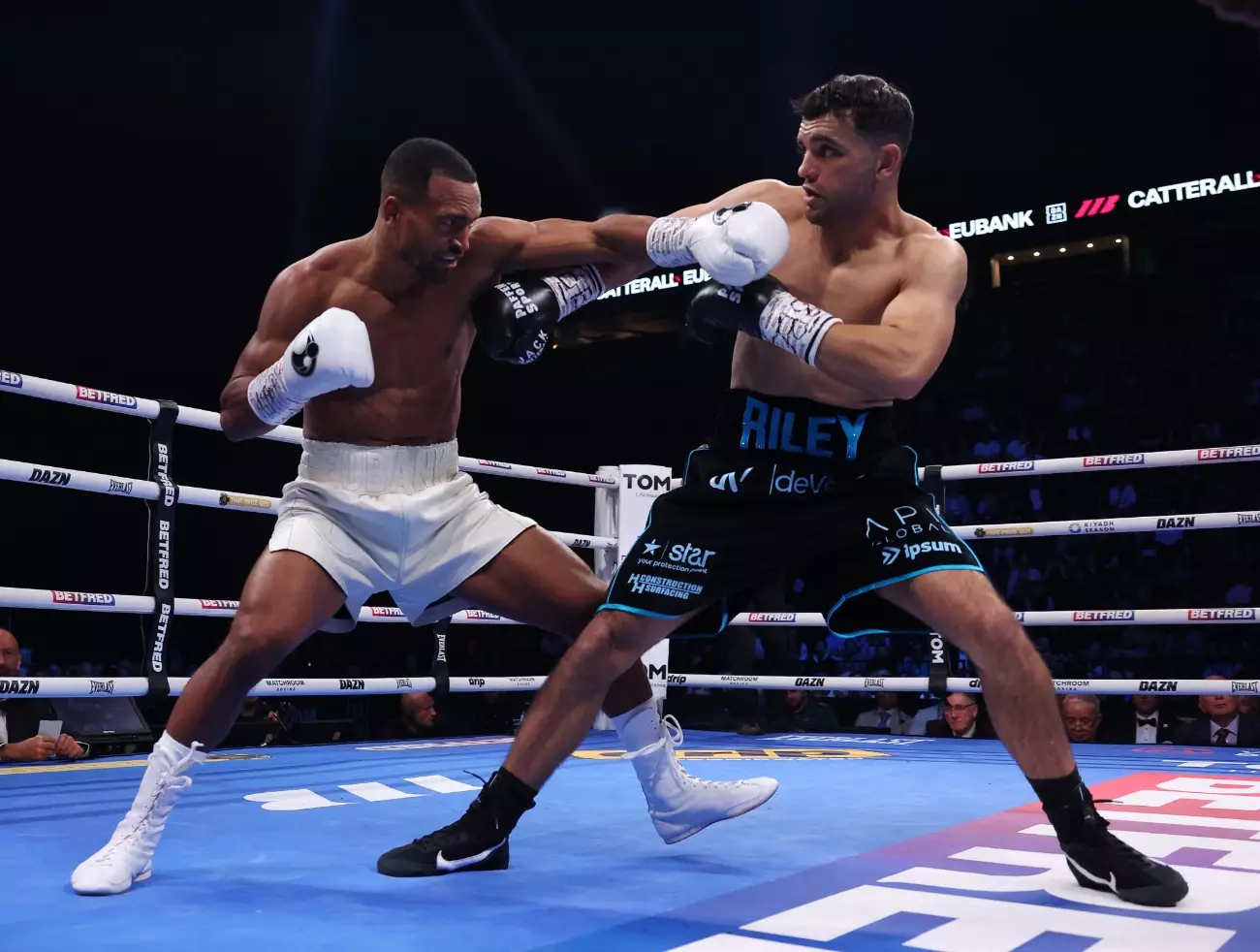In the realm of professional boxing, few athletes demonstrate the relentless spirit and unwavering determination that define a true champion like Jack Catterall. His recent gritty performance at Manchester Arena underscores his refusal to surrender to mediocrity and highlights the importance of resilience in a sport that demands both mental fortitude and physical endurance. Catterall’s journey isn’t just about the victory itself but about the tenacity required to face setbacks, adapt, and push forward against adversities, even when the odds seem insurmountable.
Despite a lackluster encounter marked by hesitant exchanges and a notable decline in power, Catterall showcased an admirable ability to stay composed. Whether through defensive tactics that kept him from absorbing unnecessary punishment or through moments of cautious counterattacks, he proved that mental resilience is a cornerstone of long-term success. His resilience becomes even more evident when considering the injury—an ominous cut—threatening to cut his momentum short. It is in how he manages these injuries and setbacks that true fighters are separated from the rest; Catterall’s perseverance remains a testament to his unbreakable spirit.
The Politics of Opportunity and the Quest for Greatness
The landscape of boxing is as much about strategic maneuvering as it is about raw talent. The decision to halt the bout due to the cut, albeit frustrating for fans and fighters alike, exemplifies how regulatory concerns often impact a fighter’s trajectory. Yet, what stands out is Catterall’s argument that the fight’s conclusion was prematurely enforced, denying him a chance at an eventual triumph. His appeal for a rematch underscores a fundamental belief many fighters hold: true excellence isn’t earned in moments of injury or distraction but through continuous effort and opportunity for redemption.
Furthermore, promoter Eddie Hearn’s strategic focus on elevating Catterall toward a title shot casts light on the business side of boxing. Instead of rematching Harlem Eubank—a fight many would see as a logical rivalry—Hearn envisions a different path, aiming for the IBF title and superior competition at the world stage. This strategic shift indicates a recognition that Catterall’s potential extends beyond a single fight or rivalry. It reflects a broader understanding that fighters must seize their moments, sometimes sacrificing immediate rematches for longer-term ambitions that can redefine careers.
Redefining the Role of Power and Technique
Critically, Catterall’s performance at 147 pounds raised questions about the typical attributes associated with boxers in that weight division—namely, power. His apparent lack of knockout power and slower pace might seem like faults on paper, yet they highlight a nuanced reality: boxing greatness isn’t measured solely by raw power but by tactical intelligence and adaptability. Catterall’s strategy seemed rooted in durability rather than dominance, a calculated approach that prioritizes survival and precision over spectacle.
Conversely, Harlem Eubank’s approach displayed frustration—clinging to grab-and-wrestle tactics rather than leveraging his power advantage, a choice that ultimately undermined his potential to capitalize. The fight’s overall dullness might have been disappointing, but it offers a critical lesson: fighters need to diversify and sharpen their skill sets beyond raw athleticism if they are to ascend to the upper echelons of the sport. A fighter who depends solely on power risks becoming predictable and vulnerable, especially against wily opponents like Catterall.
The Future That Awaits Jack Catterall
Looking ahead, Catterall’s ambitions are clear: he desires a shot at the world title, and his promoter, Eddie Hearn, is committed to making that a reality. Moving away from the tangled rematch debate, the focus shifts toward strategic matchmaking—facing off against the potentially more manageable contenders like Lewis Crocker or Paddy Donovan. Though these opponents are not world-class yet, they serve as vital stepping stones toward Catterall’s ultimate goal. It’s a reminder that progress in boxing often comes incrementally; every fight is a piece of the larger puzzle of greatness.
What remains to be seen is whether Catterall can capitalize on this momentum, shedding his image as a cautious, defensive fighter, and transforming into a confident, aggressive champion. His ability to learn from setbacks, refine his technique, and demonstrate genuine power will be the true tests moving forward. Boxing fans should recognize that fighters like Catterall, who refuse to accept limitations and continuously push their boundaries, are the ones who will redefine what it means to be a champion in the new era of the sport.

